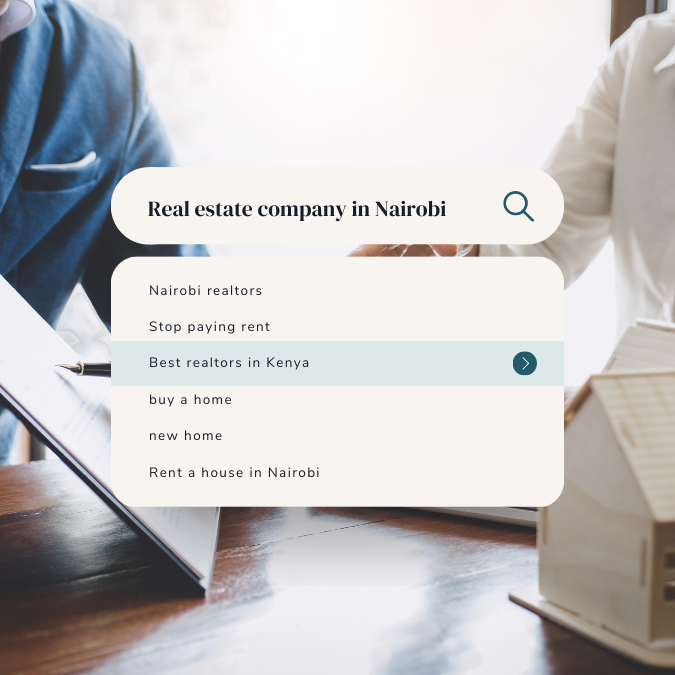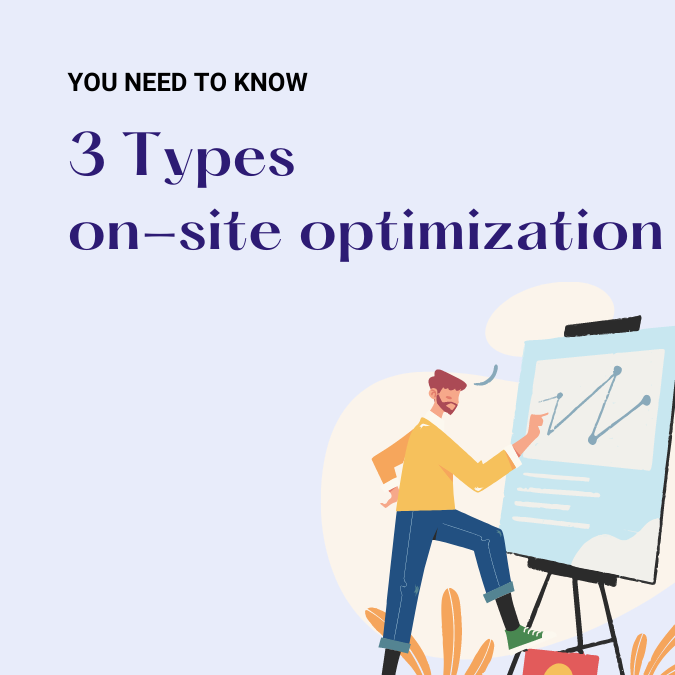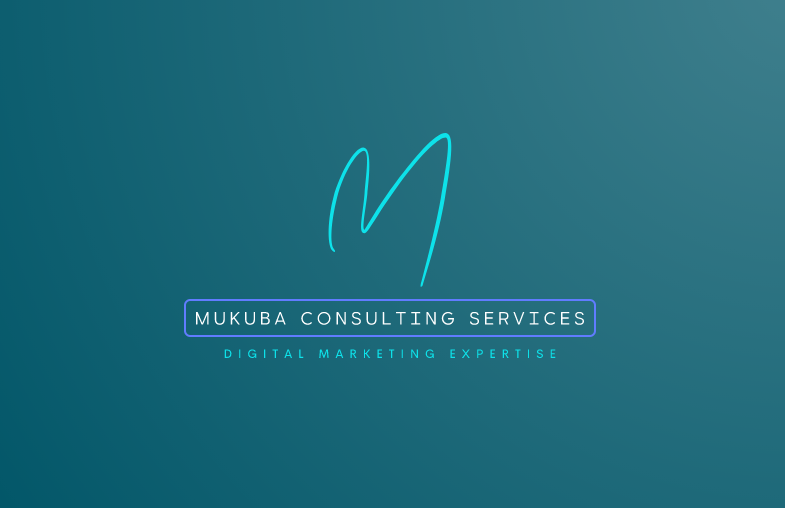As a real estate marketer, you know how important it is to make your agency visible online. With the majority of home buyers and sellers beginning their search for properties on the internet, you cannot afford to be invisible.
One of the most effective ways to boost your agency’s visibility is through real estate SEO. In this article, we’ll explore what real estate SEO is, why it’s important for your agency, and how you can implement it to improve your online presence.
How do your potential clients organize their property search process?

Today, 90% of clients’ real estate projects start on internet search engines. Let’s take a few minutes to put ourselves in the shoes of a client who wishes to sell their property located in one of your sectors of practice.
After making the decision to put their house or apartment up for sale, this client grabs their smartphone to undertake a query on search engines such as “real estate agency + city”. At this point, several real estate agency websites are referenced on this said request, but do you think that yours is among them?
The potential prospect, after undertaking their request, generally goes to the first three websites at the top of the search results. This is the whole point of working on your real estate referencing, also called SEO.
If your real estate agency’s website is poorly positioned, you will not be visible on Google and therefore automatically not in the eyes of your customers. The more well-referenced your real estate agency’s website is on the Google search engine, the more customers who are considering a real estate project will have the opportunity to find you easily on the web.
As you have understood, SEO optimization for search engines is today an essential marketing lever for real estate agencies: you may have the most beautiful website in the world, but if it is not visible on search engines, it will be useless. To thrive in the face of dense competitor websites, real estate agents have every incentive to harness the power of search engines to achieve a share of ongoing traffic from qualified leads.
Understanding how Search Engines Work

Search engines are applications that allow you to perform web searches. Google is one of the best-known search engines, but you’re probably familiar with Bing and Yahoo as well.
To better understand the importance of setting up a real estate SEO strategy, let’s take a closer look at the main stages in the operation of a search engine.
The Exploration Phase, or How Google Finds Web Pages
Also known as “Crawling” in web marketing jargon, this corresponds to the first action of a search engine. Crawling is a process in which robots known as “spiders” or “crawlers” explore web pages in order to rank them by relevance according to well-defined criteria. During this crawling phase, search engine robots will browse the entire site of your real estate agency and the elements that compose it: text, HTML content, media resources, etc. It’s important to understand that without crawling, the search engine cannot discover your site, and in fact, it cannot appear in the search results.
The Indexing Phase, or How Google Saves the Web Pages of Your Real Estate Site
To understand this step, think of the index as the brain of search engines. After collecting the entire website of your real estate agency, the robots analyze the content of the site to add it to their database. During the indexing phase, the robots take into account elements related to the domain, the content of the site, the technicality of the latter, and finally, its external environment to classify it by relevance and determine its position in the search results. This is where the challenge lies in getting your site to the top of the search results. To achieve this, your real estate agency must offer quality content and a concrete SEO strategy.
Elements Relating to Your Domain Name Taken into Account During the Robot Indexing Phase:
- The age and history of your domain name: the longer a domain belongs to the same owner, the better its referencing will be. The keyword present at the heart of your domain name, as well as the extension of your domain name.
Elements Relating to the Content of the Web Pages of Your Site Taken into Account During the Indexing Phase:
- The presence of the main keyword in the title of your web page: we talk about optimizing title tags (H1) in natural referencing.
- The positioning and density of keywords exploited by your content.
- The quality and length of the content of the web pages of your site: we recommend a minimum of 1000 words for your content to be well referenced.
- The density of duplicate content present on the web pages of your site.
Elements Relating to Your Site Taken into Account During the Indexing Phase:
- The presence of an SSL certificate on your site: surely you have already landed on a so-called “unsecured” site and did not trust it. Well, it’s the same for Google! The “responsive” aspect of your website: is the display of your website optimized for browsing on tablets or mobiles?
Elements Relating to the External Environment of Your Site Taken into Account During the Indexing Phase:
- The number of backlinks held by your website: a backlink is a domain name outside your site that sends a link to your site. The more external sites point to yours, the more Google will trust your site since external entities are talking about you! However, be sure to check the quality of the links pointing to your site; they must have a theme similar to that of your website.
Why Invest in Real Estate SEO to Overtake Your Real Estate Competitors on Search Engines?

As you’ve understood, faced with the density of competition on the web, it’s essential for a real estate agency to invest in a referencing strategy to obtain quality and sustainable positioning on search engines and increase the performance tenfold of its digital marketing actions. There are several practices to work on your natural referencing. In this article, we provide some tips and tricks to start this long-term job.
To fully understand the referencing strategy to be implemented on your real estate agency’s site, we’re going to separate the practices into two categories: on-site optimization, which refers to the technical actions that you can control at the heart of your site, and off-site optimization, which refers to all activities that occur outside of your site.
3 Types of On-Site Optimization to Implement on Your Website

Today, several on-site optimizations will allow you to achieve your objectives in terms of SEO and visibility of your website. We’ll first talk about improvements to the technical structure of your agency’s site.
The first well-known technical indicator that Google takes into account to rank the relevance of your site is its loading time.
Indeed, put yourself in the place of internet users who are looking for you on Google: if once your site has been found, they click on it and wait too long before being able to interact and browse your site, they will leave, like you surely would.
This is why it’s essential to optimize the loading time of the pages and content of your site to guarantee smooth navigation for your internet users.
For this, you can benefit from several tools available online that will allow you to understand this loading time and optimize it thereafter.
The second technical indicator to put in place on your website so that it’s well-referenced by Google is based on the notion of responsive design.
Always for the sake of user experience and smooth navigation, it’s very important that the display of the pages of your website is adapted to the different media used by your users.
Indeed, some of your customers will find your site via a computer, others via a tablet or a mobile phone. Knowing that today, 80% of internet users become mobile users, your content must be displayed correctly on all the devices used.
Finally, the last indicator that we suggest to you today is based on the optimization of the content and architecture of the pages of your site. All the content on your site must be real estate-themed and optimized according to the keywords you want to work on or by which your users could find you. This step requires you to put yourself in the shoes of your users to understand from which query or expression they would be able to find you.
Before you start writing content for your site, you must go through the keyword research phase. For this, there are online tools such as SEMRush and Ahrefs that will help you identify relevant keywords and their search volumes.
For example, the most processed queries today by a real estate agency are queries such as “real estate agency + city” or even “house valuation + city,” “apartment valuation + city.”
It’s up to you to know which are the most strategic requests for your real estate agency, make a list of all of these requests, and all the possible keywords that you can use and start working with them.
Local SEO: A Gold Mine for Real Estate Agencies

Improve the local search engine optimization (SEO) of your real estate agency by leveraging Google My Business.
One well-known practice to boost your local referencing is to create a business listing on Google My Business. This feature allows you to provide all relevant information about your agency, such as your address, telephone number, hours, reviews, and website link, so that your business can appear on Google.
This technique can improve your natural referencing, as Google displays establishments related to a user’s search nearby. Your Google My Business listing will also make you visible on Google Maps, the mapping service provided by Google. By accurately filling in your Google My Business profile, you can attract local traffic to your establishment or website. You can also collect customer reviews through this same sheet and improve your reputation with Google and your customers.
Another feature called “Google Posts” can boost your SEO and Google listing. This feature allows you to write and publish posts on your Google listing to keep it attractive.
Here are some strategies you can implement to improve your agency’s online presence:

Conduct Keyword Research
Conducting keyword research is the foundation of any successful real estate referencing strategy. By understanding the search terms that potential clients are using to find real estate services in your area, you can optimize your website and content to rank higher in search engine results.
Optimize Your Website
Your website is the hub of your online presence, and it’s crucial to optimize it for search engines. This includes ensuring that your website is mobile-friendly, has fast load times, and includes relevant keywords in the title tags, Meta descriptions, and page content. Additionally, having a well-organized site structure, clear navigation, and internal linking is essential.
Create Quality Content
Creating quality content is another key component of real estate referencing. By regularly publishing blog posts, articles, and other content relevant to your market, you can attract more potential clients to your website. High-quality content can also establish your agency as a thought leader in your market, building credibility and trust with potential clients.
Build Backlinks
Backlinks are crucial for search engine ranking. By building high-quality backlinks to your website, you can improve your online visibility and boost your search engine ranking. This can include guest blogging on other real estate websites, participating in online forums and communities, and reaching out to other website owners to request backlinks.
In conclusion,
real estate referencing is a vital component of any successful online marketing strategy for your agency. By implementing these strategies, you can improve your online visibility, attract more potential clients, and generate more leads for your agency. Remember, real estate referencing is an ongoing process that requires regular monitoring and adjustments.



